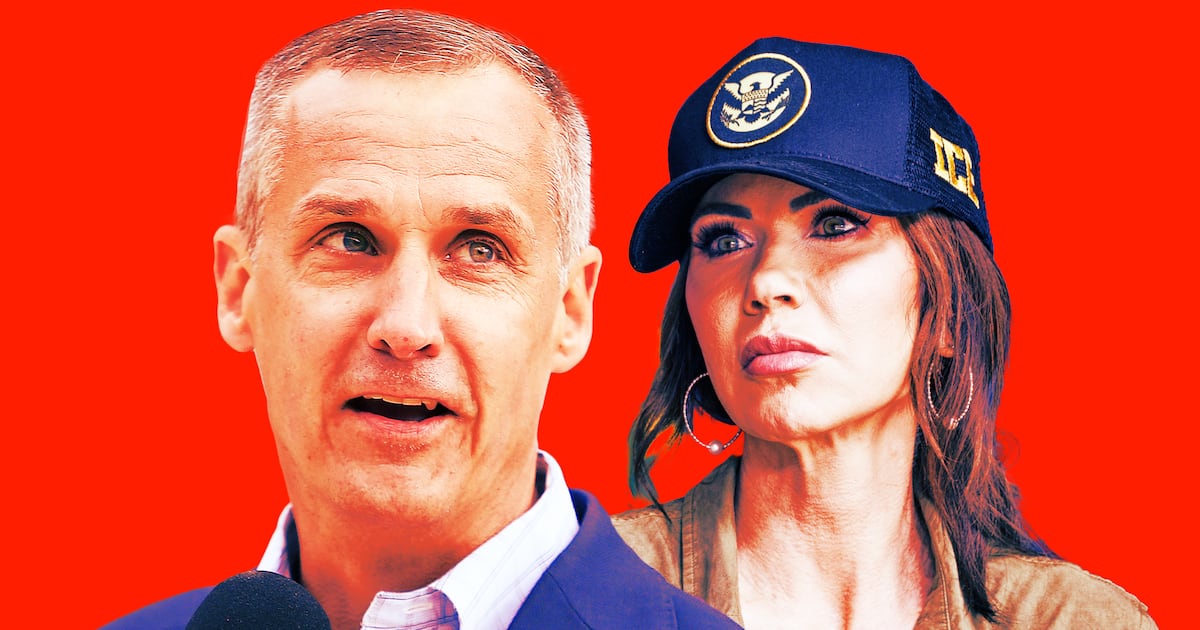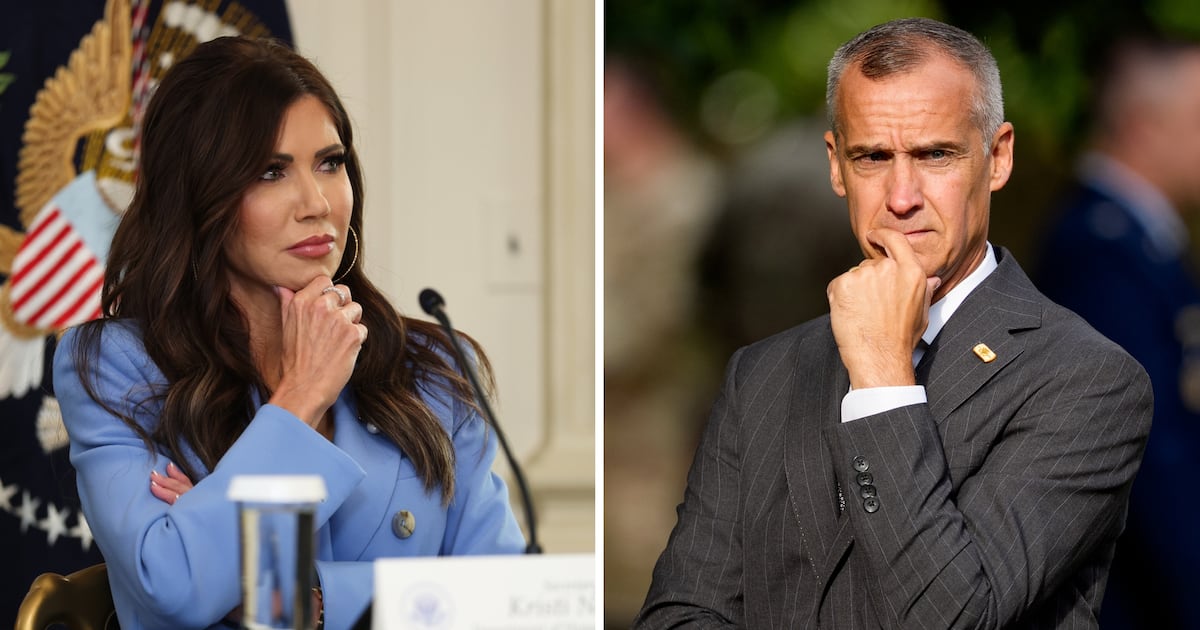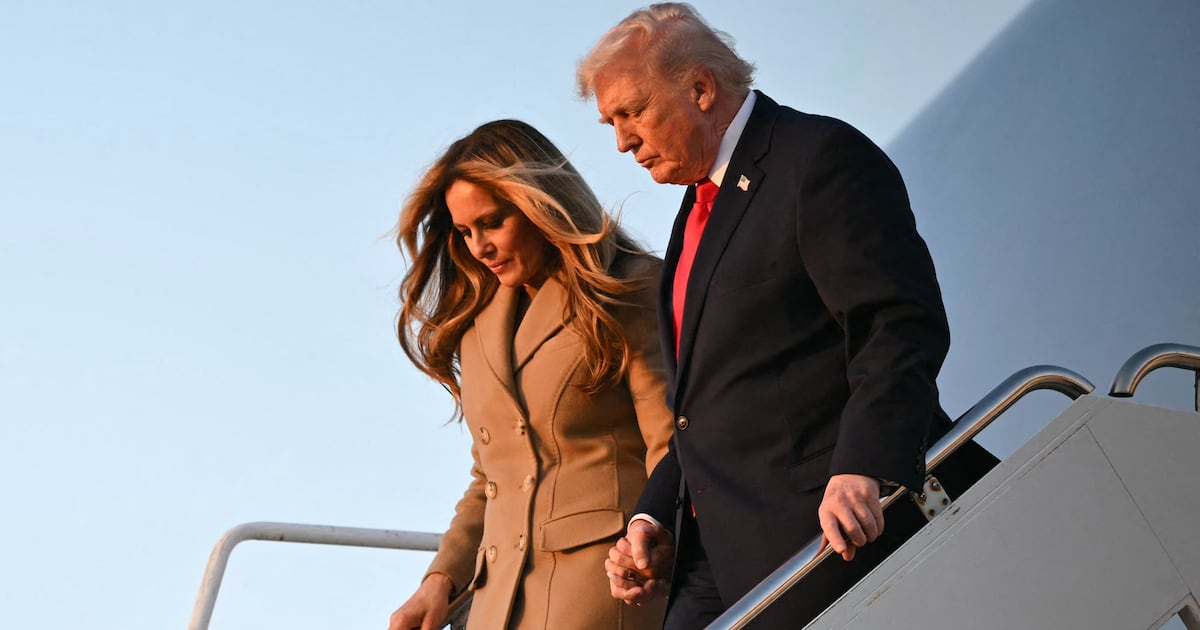The magnificent Chartwell House, a 10,000-square-foot mansion surrounded by lush, manicured grounds about 18 miles from central London, might seem an odd place to start a war. But that’s where Mudhar Shawkat, a wealthy Iraqi businessman who has a long history with U.S. intelligence, is making his stand against the self-proclaimed Islamic State.
Shawkat, a Sunni who made his money in the telecom business and running a private security firm called Babylon Eagles, says he’s fielding an autonomous, Sunni army to go toe-to-toe with ISIS and liberate the huge swaths of Iraq that the militants have conquered. And his men are ready to fight without the help of the central government in Baghdad, he says.
Shawkat gave his London address on disclosure forms filed with the U.S. Senate last week, when he hired a band of Washington, D.C., lobbyists to help him open a second front in his campaign. The firm is run by former Idaho senator Steve Symms and two ex-senior congressional aides. Their mission: to arrange meetings for Shawkat with U.S. lawmakers and power brokers who might bless his grand vision and help it gain support in Washington.
“Give me a chance to have a Sunni fight against ISIS,” Shawkat told The Daily Beast in an interview, as he was shuttling between Lebanon and Erbil, in the Kurdish-controlled northern portion of Iraq. Shawkat insists that because ISIS itself is composed of Sunnis, only warriors from its own sect are prepared to slay it. That, and there’s no way in hell he wants Iranian-backed Shiite militias to do the job. That would only give Tehran more sway over the Shiite-dominated government in Baghdad.
So far, Iranian-backed Shiite militias have been running a ground fight against ISIS forces, supported by U.S.-led airstrikes. But in the long term, leaving the terror group’s destruction to Shiites courts disaster, Shawkat said. President Obama has said he’s committed to wiping out ISIS, but his plan seems to require Iran’s help to do that. And now, after the recent nuclear deal with Iran, Shawkat and some of his Sunni compatriots in exile are questioning the administration’s commitment to backing them up.
“We want to form an army that will be led by former Iraqi officers,” said Shawkat, who speaks in a smooth baritone and has near-perfect English. Those men, of course, served under Iraq’s former (Sunni) dictator, Saddam Hussein. That’s only the first controversial element of Shawkat’s private war plan. Those officers were thrown out when the U.S. occupation force disbanded the Iraqi military in 2003, but he wants to put them back in uniform. They will lead a force of some 10,000 men who Shawkat says are ready to march once they’re armed.
Shawkat was in Washington last week and said he met with more than a dozen senators and congressmen, from both parties, including the respective chairs of the Senate and House armed services committees, John McCain and Ed Royce. He’s confident that one or both committees will hold a hearing this year on Sunni efforts to rid Iraq of ISIS. Spokesmen for both lawmakers didn’t respond to requests for comment.
Those 10,000 men, Shawkat said, consist of “conscripts” from in and around Mosul, where ISIS took over in a blazing assault last June, as well as members of the so-called Sunni Awakening that fought the Islamist militants during the U.S-led war that ousted Hussein. Current and former U.S. military officers and intelligence officials have credited their efforts with helping to turn the tide of the war in 2007 and 2008. And now, the Obama administration is encouraging more Sunnis to join in the fight, particularly through efforts by the central Iraqi government to train fighters in concert with Sunni tribal leaders in Anbar province, which has been overrun by ISIS.
But Shawkat wants a separate army, cleaved off from Baghdad, and that makes his plan more radical than other would-be Sunni standard bearers who’ve said they’re willing to try to work with Iraq’s Shiite prime minister, Haider al-Abadi.
“I will not work under him, because I will lose my base,” Shawkat said, which he claims comes from a 1 million-strong movement that he leads called the National Salvation Front, established in 2014. Shawkat insists he doesn’t want to see Iraq broken into separate countries along sectarian lines. But he’s also pushing for a new autonomous “Sunni regional government,” which he said would be temporary. Once ISIS is defeated, he said, the final boundary lines of three provinces—one Kurdish, one Sunni, and one Shiite—-can be drawn.
Shawkat is eyeing his friends in Washington warily these days. “He’s very concerned that the U.S. sees the Iranians as an ally to get rid of ISIS. That would be a major mistake,” Shawkat’s spokesperson, Whitley Bruner, told The Daily Beast. “This is a Sunni-on-Sunni fight.”
Bruner, a former CIA operations officer and longtime Middle East hand, said that the commitments from the 1,700 officers and 10,000 soldiers to fight ISIS were real, and that Shawkat has also been looking for support among “regional powers,” whom he declined to name. Shawkat himself said that Saudi Arabia and the United Arab Emirates were two countries that could be helpful in acquiring weapons for the new militia, and indicated that U.S. approval of such a transaction would help to speed it along.
Shawkat is not an unknown entity in Washington. He was a senior leader in the Iraqi National Congress, a Hussein-opposition group that had bipartisan backing in the U.S. Congress and received funding from the CIA, the State Department, and the Pentagon. Shawkat insisted he was never a “deputy” to the INC’s notorious leader, Ahmed Chalabi, as has been widely reported. Shawkat was already running a group opposed to Hussein of his own in 2002 when he was brought together with Chalabi, he said, “under heavy persuasion of Department of State and Pentagon.” They split in 2004, but remain on good terms, Shawkat said. “Dr. Chalabi remains a personal friend, but we differ on political matters and methodologies.”
David Mack, a former deputy assistant secretary of state who was once in charge of the U.S. government’s interactions with Iraqi opposition forces, described Shawkat as a politically “flexible” man whose business acumen mirrored his political skills.
Mack said he met Shawkat in the spring of 1999, when Shawkat was living in exile in Vancouver. He’d come to a large conference for Iraqi opposition groups in New York, and stood out as someone who “had a good sense of the role the Iraqi private sector could play” in efforts to prepare for a post-Hussein nation, Mack told The Daily Beast. “He’s a entrepreneurial personality. Sometimes that makes for good politicians.”
That also may have been what drew him to Chalabi. “He realized that one of the things he needed in the INC was a prominent Iraqi Sunni figure, and he eventually settled on Mudhar for that role,” Mack said.
Bruner, Shawkat’s current spokesman, was the man who first recruited Chalabi to work for the CIA, in 1991. That led to the formation of the INC, which later provided provided U.S. intelligence with information about Hussein’s supposed weapons of mass destruction program—intelligence that was later discredited. “Without Chalabi there would have been no war,” journalist Aram Roston wrote in his book on the notorious Iraqi, The Man Who Pushed America to War.
Shawkat’s connections to Chalabi may be the least of his challenges in persuading Washington that he’s the right man to fight ISIS. That’s because there are several Iraqi Sunnis making that claim, including at least three other individuals and groups who have hired lobbyists of their own in the past year, according to disclosure records. (There’s also an effort underway to bankroll Iraq’s Kurdish fighters, by Republican mega-donor Foster Friess.)
One of the Sunni players, Sheikh Abdalrazzaq Hatem al-Suleiman, a prominent tribal leader, met with members of Congress during a week-long visit in May. He also sat down with Royce, the House Armed Services Committee chair, with whom Shawkat met. At the State Department, Abdalrazzaq spoke with Brett McGurk, President Obama’s special envoy to the international coalition to conquer ISIS.
The sheikh, who fled Iraq after ISIS destroyed his home in Anbar province and now lives in Jordan, leads a tribe of some 300,000 who are also prepared to fight the militants, Jonathan Greenhill, his representative in Washington, told The Daily Beast.
“The sheikh is ready to produce his tribesmen now,” said Greenhill, a former senior operations officer with the CIA.
After his visit to Washington, Abdalrazzaq obtained a proclamation from the Al-Anbar Provincial Council in Iraq, supporting his plan to pull together Kurds and Shiites—not backed by Iran—and train them to fight ISIS, along with Iraqi Sunni fighters. Unlike Shawkat, the council is willing to work with the central government in Baghdad to train the fighters. The council’s training plan also has the backing of the Obama administration.
What’s shaping up in Washington now may be a fight to see which of the various Sunni players has the best plan, or at least can undermine the others. Among the groups is another coalition of Sunni tribal chiefs, as well as prominent figures from Iraq’s Nineveh province. If anything united them, it’s their varying degrees of distrust of Baghdad and its Iranian allies.
“Over the past 12 years, by far more Sunnis have been killed by these Iranian-backed Shiite militias than by al Qaeda or ISIS combined, while the Iraqi central government turns a blind eye,” Mark Alsalih, a prominent Sunni lobbyist in Washington and the president of the Iraq Stability and Security Program, composed of citizens and tribal sheikhs, told The Daily Beast.
The various groups want to strengthen their own hands while the Obama administration backs Abadi and leans on the central government to solve Iraq’s problems and defeat ISIS—hence the furious lobbying efforts of late by so many Sunnis. But all their work may reveal more about their various plans’ weaknesses than their strengths, experts said.
“The seemingly endless parade of Sunni leaders coming to Washington seeking arms and other support to equip bands of fighters speaks to two critical, reinforcing problems in Iraq today,” Kenneth Pollack, a former CIA analyst who worked on Iran and Iraq military issues and is now a senior fellow at the Center for Middle East Policy at the Brookings Institution, told The Daily Beast.
“First, the Sunni leadership is fragmented and lacks a unified command structure that could organize a fight against Da’ish or conduct meaningful negotiations with Abadi,” Pollack said, using an Arabic acronym for ISIS. “Second is the persistent sluggishness of the Iraqi government (and its U.S. allies) in arming and training willing Sunni fighters on their own.”
A kind of stalemate has ensued, Pollack said, with the Shiite-dominated government in Baghdad arguing that it needs to take things slow, because the Sunnis that want arms are being led by “freelance leaders whose allegiance is unknown,” and the Sunnis in terms demanding arms to “circumvent a government they believe is either unwilling or unable to lead the fight against Da’ish in the Sunni heartland.”
In the days when the U.S. forces were fighting and dying in Iraq against ISIS’s predecessor, U.S. officials may have been more willing to roll the dice on some of these freelance leaders.
“There are lots of tribal leaders and municipal leaders who have clout. And in the Bush era they all would have been taken rather seriously,” Jonathan Schanzer, a former terrorism analyst with the Treasury Department and now the vice president for research at the Foundation for Defense of Democracies, told The Daily Beast.
“Right now, my sense is that they are being viewed by the Obama White House as people who could drag America back into conflict or waste more of our treasure on a hopeless cause,” he said. “I’m sympathetic to them. But I think they need to somehow organize internally better before approaching this Congress and this White House.”
In the meantime, Shawkat said he is planning to come back to Washington in the fall, hopefully as a witness at one, maybe two congressional hearings. There, he might have his best chance yet to pitch his war plan.






